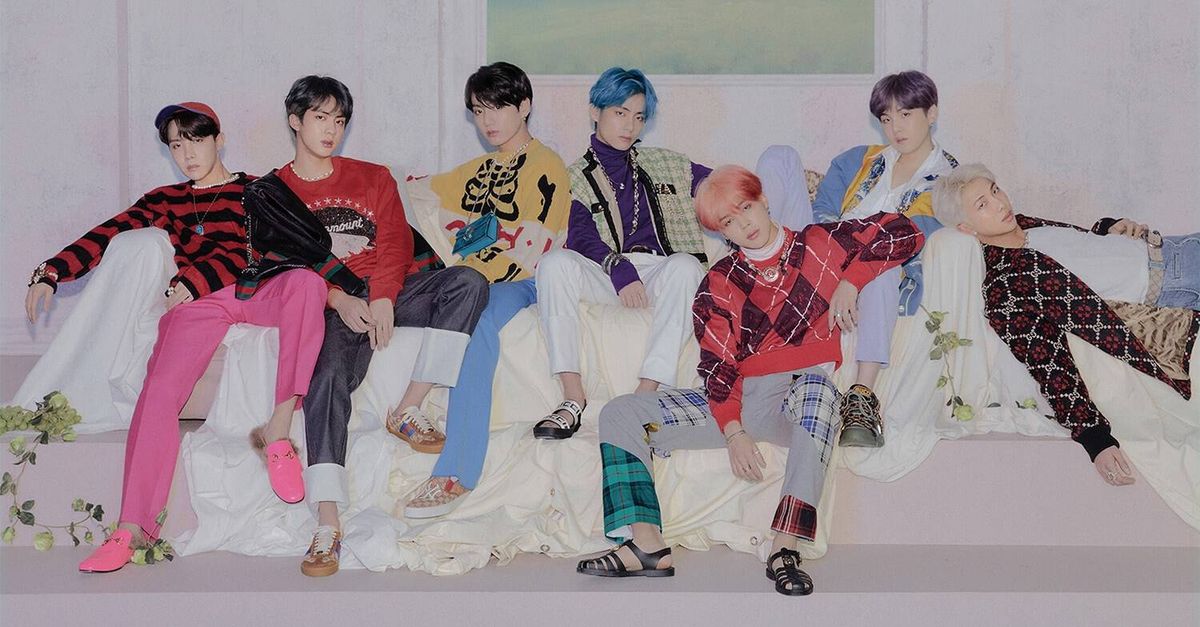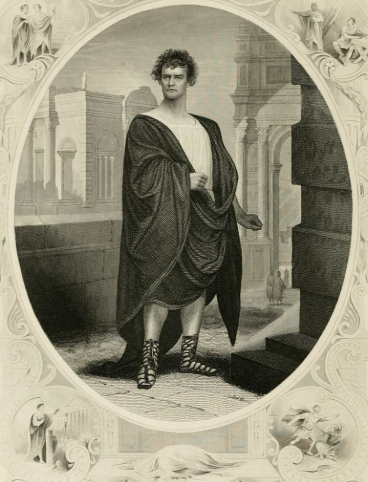The BTS Effect: Why We All Should Be Part of the ARMY

The first time I really started to pay attention to the K-pop boy band BTS was when they performed “DNA” at the 2017 American Music Awards (AMAs). I’d always had a cynical view of K-pop: picture-perfect idols, usually teenagers, who’d spent their entire lives ruthlessly preparing for a debut, singing catchy but ultimately empty tunes about love.
Without actually listening to any of their music, I assumed BTS would have similar songs and messages to most K-pop and didn’t understand why the group suddenly skyrocketed to international fame. My opinion was transformed when I heard the bright whistle-tune that starts “DNA” and saw the incredible creativity of the group’s choreography at the AMAs. The members weren’t just idols; they were artists. This tension between the two roles is one that the septet has explored in the past, most notably with their single “IDOL” featuring rapper Nicki Minaj. The group’s leader and main rapper RM powerfully begins the song with “You can call me artist / You can call me idol / Whatever you call me I don’t care / I’m proud of it” (translated from Korean; most of their lyrics are in Korean, with a few English words interspersed in some songs).
BTS, which stands for Bangtan Sonyeondan in Korean and Beyond the Scene in English, debuted in 2013. Formed by Bang Si-Hyuk, founder of the Korean entertainment company Big Hit Entertainment, the group was originally an underdog because the biggest K-pop groups were under the three major entertainment labels — JYP, SM or YG (Big Bang, anyone?). The group’s first win at a Korean music awards show was for the 2015 single “I NEED U.” BTS has come a long way since then, gathering an unbelievably supportive and vocal fanbase, which has named itself the ARMY, and breaking international records left and right.
The band released its newest album “Map of the Soul: Persona” on April 12. The music video for the lead single “Boy With Luv” now has the most-viewed 24-hour debut in YouTube history (beating out BLACKPINK’s “Kill This Love” which broke Ariana Grande’s “thank u, next” record). The group was also recently confirmed to be the first Asian artist to exceed five billion streams on Spotify.
“Map of the Soul: Persona” draws its title from ideas of the psyche, ego and collective unconscious theorized by a founding father of analytic psychology, Carl Jung. Fittingly, the album features tracks that delve into Jungian concepts and focus on exploring the idea of “persona,” which Jung described in “The Relations Between the Ego and the Unconscious” as “a kind of mask, designed on the one hand to make a definite impression upon others, and on the other to conceal the true nature of the individual.”
“Intro: Persona,” which begins the album, sees BTS leader RM explore the disconnect between his onstage persona and his true self. “So I’m askin’ once again yeah / Who the hell am I?” he raps. The track is built around a recycled beat from the opening of BTS’ 2014 track “Intro: Skool Luv Affair” and comments on the difficulty of knowing who you are in the midst of superstardom and conflicting advice. “I smile more than I used to / The Superhero I wanted to be / Now I think I actually am one/ But wherever I go there’s a lot of talk / Some tell me to run some tell me to stop,” RM claims. The song tackles the artist’s struggle with the imposter syndrome that follows incredible success.
The next track on the album is the lead single “Boy With Luv,” which is a direct reference to BTS’ 2014 single “Boy in Luv.” The song features summery, echoing beats and a couple verses from singer Halsey, whose bright, raspy voice fits perfectly with the vibe.
Some of the other standout tracks from “Map of the Soul: Persona” include “HOME,” the Ed Sheeran-produced “Make it Right” and “Dionysus,” which closes the album. In “HOME,” Suga passionately raps about the strangeness of fame, saying, “The world thinks we have the world / Things I dreamed of, big house, big cars, big rings/ Even if I can have everything I want / There’s something empty and strange about having it all.” The song ends on a hopeful note, however, with BTS dedicating the song to their fans — singing and rapping about how the ARMY makes them at home no matter where they are. “It’s been a while my home / With you I just feel rich / I’m back now my home / You kept the light on for me,” they sing.
My personal favorite track, “Make it Right,” features a looped horn line that works incredibly well underneath the crooning melody of the song. V opens the song with his deep, R&B-esque voice, and we see the vocals of the group truly shine as Jimin, Jungkook and Jin soothe with their breathy high notes, which suit the lyrics of the song so well: “I couldn’t see through the endless night / You gifted me with morning / Can I hold that hand now / I can make it right.”
The rock-influenced “Dionysus,” which references the Greek god of wine and pleasure, is tension-filled and features pointed, rhythmic vocals from the rappers that intersect with low, droning singing. Suga’s rap verse stands out in its power: “Wherever we are in the world it’s a stadium party / We were born as K-pop idols, reincarnated as artists / Reincarnated as artists, reincarnated as artists / Whatever I am it’s not important.”
“Map of the Soul: Persona” is a continuation of BTS’ message that it is okay to not be perfect, and it is okay to question yourself. Furthermore, the group’s explosive popularity pushes us to imagine a world that is not English-centric. In an interview with Time magazine, DJ Steve Aoki (who collaborated with BTS on the iconic “MIC Drop”) noted that BTS’ success is proof that music “doesn’t have to be English to be a global phenomenon.”
And they are using their power for good — in 2018, BTS spoke at an event for youth empowerment at the United Nations General Assembly, with RM delivering a heartfelt speech about self-acceptance: “No matter who you are or where you’re from, your skin color, your gender identity, speak yourself.” Even if you don’t understand Korean, even if you don’t enjoy their music, there’s no denying that BTS exudes an infectious positive energy that is difficult to ignore. With their exploratory lyrics and heartfelt messages, this group of seven boys successfully shatters the superficiality which tends to dominate popular music and the entertainment industry as a whole.




Comments ()